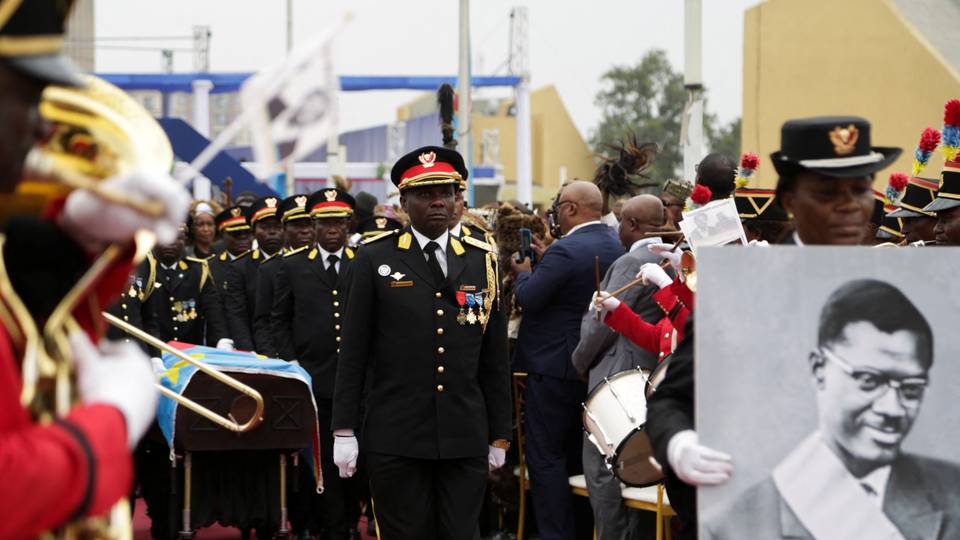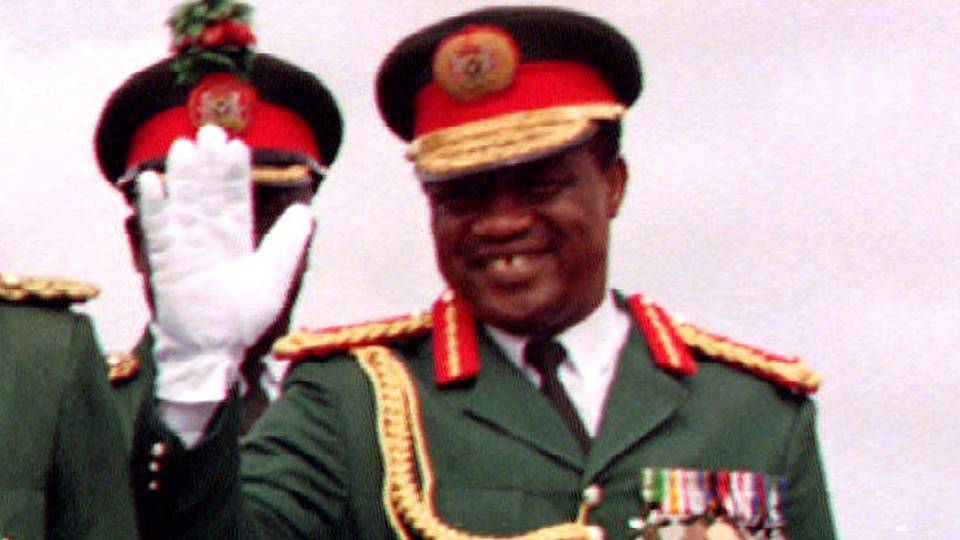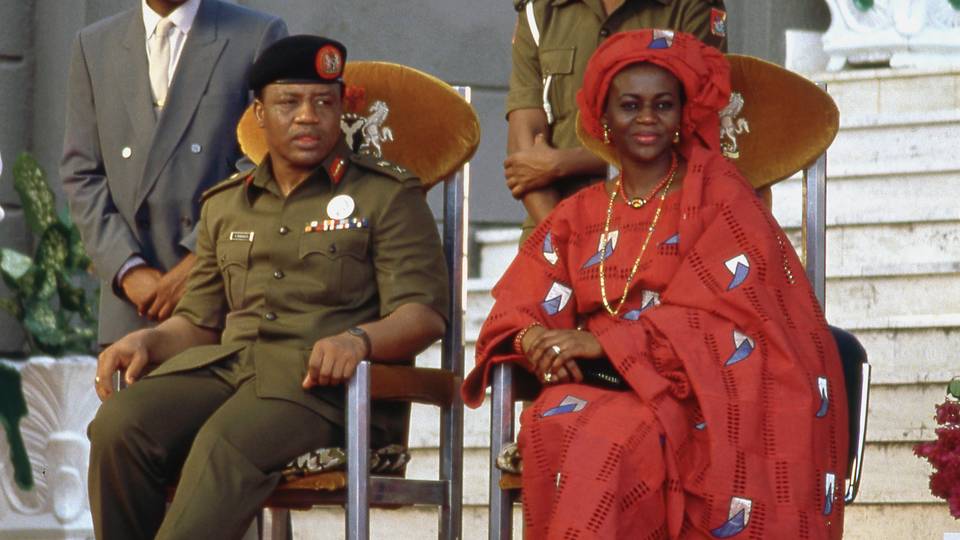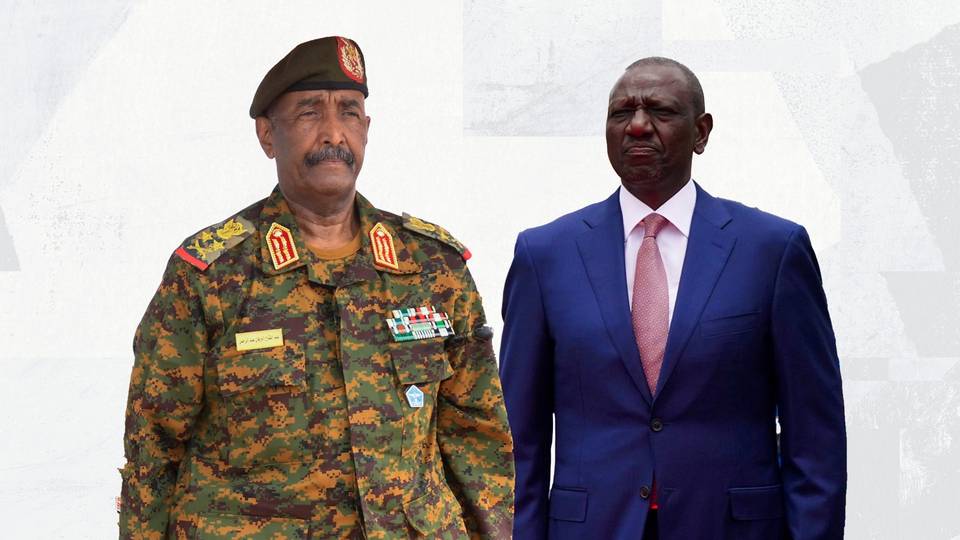Sport
Dollar
38,2552
0.34 %Euro
43,8333
0.15 %Gram Gold
4.076,2000
0.31 %Quarter Gold
6.772,5700
0.78 %Silver
39,9100
0.36 %DRC has been an independent Central African republic for 64 years, but the vision of its greatest nationalist continues to be held hostage by Western interests six decades after his assassination.

By Susan Mwongeli
As the American memoirist, poet, and civil rights activist Maya Angelou succinctly put it, "History, despite its wrenching pain, cannot be unlived, but if faced with courage, need not be lived again."
For the Democratic Republic of Congo (DRC), Africa's second-largest country by land mass, the 64th anniversary of its independence from Belgium on June 30 was as much a time for reflection as it was of celebration.
It's also been 63 years since the assassination of the Central African republic's first democratically elected Prime Minister, Patrice Lumumba, by a Congolese secessionist movement backed by Belgium and the US.
Decades after Lumumba's death, around five months short of his 36th birthday, his beloved country is battling the same ills he sought to defeat — foreign meddling, armed conflict, political instability, poor governance, and widespread poverty.
Had Lumumba lived, the DRC might have taken a different and most likely progressive trajectory in its national development.
Located in the heart of the Congo Basin, the country boasts a pool of mineral and forest resources counted among the world's largest.
While the Congolese population of 105 million remains mostly poor despite an abundance of natural wealth, these resources have become magnets for self-serving foreign interests that seek to exploit them by backing corrupt civilian governments or armed groups.
Foundational shocks
Historians see the origins of the Congolese state as the source of its persistent weakness. What we know as the DRC republic was first established as a personal territory of King Leopold II of Belgium in 1885.
After acquiring this territory, the king named it the Congo Free State, which became a byword for widespread atrocities committed against the local African population.
Millions of Congolese were killed as Leopold exploited Congo's mineral and forest resources.
Condemnation of these abuses forced Leopold to cede the territory to the Belgian state in 1908. Despite the change, repression did not ease, and the colonial authorities pursued the same coercive policies as Leopold.
DRC gained independence on June 30, 1960, only for Western aggression to escalate after Lumumba, a fiercely nationalistic figure, became the country's first Prime Minister with the people's mandate.
Weeks after taking over, Lumumba faced a secessionist rebellion backed by the West in the southeastern region of Katanga.
He appealed for military intervention by the UN, which was largely ignored, forcing him to turn to the erstwhile Soviet Union.
The then Congolese President, Joseph Kasavubu, blamed the rebellion on Lumumba and sacked him in September 1960. Days later, Lumumba was detained. In January 1961, he was handed over to the Katangan administration, which had him killed soon after.
Western hegemony
Fred M'membe, a well-known journalist and president of the Zambia Socialist Party, says Western countries' tactics have been consistently geared towards obstructing Africa's development.
''Our leaders who tried to take a different path, independent from theirs (the Western world), we know what happened to them in history. Patrice Lumumba was killed for simply saying the resources of Congo belong to the Congolese and Africa. Just for taking that assertive position, he had his life snatched," M’membe tells TRT Afrika.
"The West decides even the systems of governance we should adopt for them to deal with us. If we take a different path, they abandon us."
A 2001 investigation by Belgium's parliament found Brussels "morally responsible" for the death of DRC's first elected Prime Minister. Other inquiries implicated the US.
In 1965, the pro-West army chief, Mobutu Sese Seko, took power and oversaw one of the most repressive and corrupt regimes in the world for the next 32 years.
Mobutu was ousted in 1996 by an insurgent movement, backed by countries of the region.
Consequently, a fresh war broke out in 1997 and ended in 2003, following the signing of a peace agreement in South Africa. However, instability persists in eastern DRC.
Lumumba's legacy
The brutal death of DRC's first Prime Minister at the hands of secessionists backed by Western powers made him an African political and cultural martyr.
"It is tough for us to chart our path without being sanctioned, killed, or overthrown," says M'membe.
Lumumba became a forerunner in the struggle against Western domination. Liberation movements across Africa and the rest of the developing world continue to draw inspiration from his nationalistic ideas.
Across Africa, numerous cities have streets or statues named after him.
For the Congolese, Lumumba was the epitome of a committed nationalist who died defending national interests. Despite their varying political ideologies, Congolese politicians, too, recognise and respect his worldview.
What has yet to be fulfilled in the past six decades is Lumumba's vision for the DRC. Foreign meddling remains the foremost hurdle to achieving this goal.
The United Nations is preparing to withdraw its peacekeepers from the DRC after 32 years. By all accounts, the deployment made little difference to the country other than accentuating the feeling of external meddling and betrayal by the international community.
M’membe urges not just the DRC but all of Africa to take charge of their affairs. "For a country to develop, it has to have ownership and control of its development and the factors that lead to development," he tells TRT Afrika.
➤ Click here to follow our WhatsApp channel for more stories.
Comments
No comments Yet




















Comment